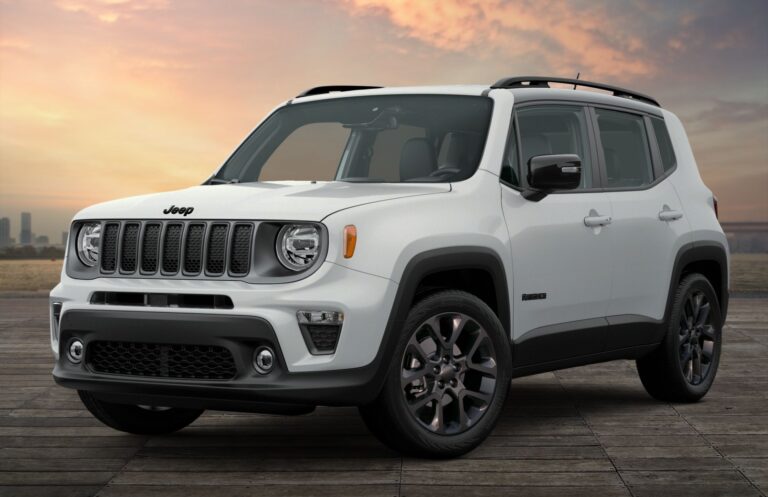Jeep Ecodiesel DEF Delete For Sale: Understanding the Complexities and Legalities
Jeep Ecodiesel DEF Delete For Sale: Understanding the Complexities and Legalities jeeps.truckstrend.com
The allure of enhanced performance, simplified maintenance, and reduced operating costs often leads Jeep EcoDiesel owners down a path of exploring modifications. Among the most discussed, and most controversial, is the "DEF Delete." This article aims to provide a comprehensive, informative, and critically balanced perspective on the topic of "Jeep EcoDiesel DEF Delete For Sale," exploring what it entails, why it’s considered, its perceived benefits, and critically, the severe legal and environmental implications.
Important Disclaimer: This article is for informational purposes only and does not endorse, encourage, or recommend the installation or use of DEF delete kits or any other emissions defeat devices on vehicles operated on public roads. Such modifications are illegal in the United States and many other countries, violating federal and state environmental laws, and can result in significant fines, penalties, voided warranties, and environmental harm.
Jeep Ecodiesel DEF Delete For Sale: Understanding the Complexities and Legalities
Introduction: What is a DEF Delete and Why is it Being Sought?
The Jeep EcoDiesel, renowned for its torque and fuel efficiency, relies on a complex emissions control system to meet stringent environmental regulations. A core component of this system is the Selective Catalytic Reduction (SCR) technology, which uses Diesel Exhaust Fluid (DEF) to convert harmful nitrogen oxides (NOx) into harmless nitrogen and water vapor. Alongside the SCR, vehicles feature Diesel Particulate Filters (DPF) to capture soot and Exhaust Gas Recirculation (EGR) systems to reduce NOx at the source.
A "DEF Delete" (or more broadly, an "emissions delete") involves modifying or removing these critical components—DEF injection, SCR, DPF, and/or EGR—from the vehicle’s emissions system. This is typically achieved through a combination of physical removal of components and electronic reprogramming (tuning) of the engine’s control unit (ECU) to prevent error codes and allow the engine to run without these systems.
The motivation for seeking a DEF delete often stems from a desire to:
- Improve Performance: Unlock perceived horsepower and torque gains restricted by emissions controls.
- Enhance Fuel Economy: Some believe that removing these systems can slightly improve MPG.
- Reduce Maintenance Costs: Eliminate the need for DEF refills, DPF regeneration cycles, and potential costly repairs to emissions components (e.g., clogged DPF, faulty NOx sensors).
- Simplify the System: Remove complex parts that are seen as potential points of failure.

However, as we will explore, these perceived benefits come at a steep and often prohibitive cost, primarily in the form of legal penalties and environmental damage.
Understanding the EcoDiesel Emissions System
Before delving into deletions, it’s crucial to understand the sophisticated system in place:
- Diesel Exhaust Fluid (DEF): A non-toxic, biodegradable solution of urea and de-ionized water. It’s injected into the exhaust stream before the SCR catalyst.
- Selective Catalytic Reduction (SCR): The catalyst where the DEF reacts with NOx, converting it into harmless nitrogen and water.
- Diesel Particulate Filter (DPF): A ceramic filter that traps soot (particulate matter) from the exhaust. Periodically, the DPF undergoes a "regeneration" process where temperatures are raised to burn off the trapped soot.
- Exhaust Gas Recirculation (EGR): Reroutes a portion of exhaust gases back into the engine’s intake, lowering combustion temperatures to reduce NOx formation.
- Oxygen (O2) and NOx Sensors: Monitor exhaust gases to ensure the systems are functioning correctly.
These systems are integral to ensuring the EcoDiesel meets modern emission standards, which are designed to protect public health and the environment from harmful pollutants.
Why People Consider DEF Deletes (and the Real Risks)
The perceived advantages of a DEF delete, as mentioned, are tempting for some owners. However, it’s vital to counterbalance these with the very real and severe disadvantages:
Perceived Benefits:
- Potential Power/Torque Gains: Removing restrictive DPFs and optimizing engine tuning can lead to increased power output.
- Reduced DEF Consumption: Eliminates the need to purchase and refill DEF.
- Elimination of DPF Regens: No more "limp mode" or forced regeneration cycles that can interrupt driving or consume extra fuel.
- Simplified Engine Bay/Exhaust: Removal of complex sensors, lines, and catalytic converters.
- Lower Long-Term Maintenance: Avoidance of expensive repairs to emissions components.
The Real Risks and Downsides:
- Legality: This is the most significant risk. In the U.S., the Clean Air Act prohibits tampering with or removing emissions control devices on vehicles used on public roads. Violations can lead to massive fines for individuals and businesses. The EPA and state environmental agencies (like CARB in California) actively pursue and prosecute offenders.
- Fines and Penalties: Federal fines can reach tens of thousands of dollars per vehicle. State and local fines can add to this. Vehicle inspection failures are also a common consequence.
- Voided Warranty: Any modifications to the emissions system will immediately void the powertrain warranty from Jeep/FCA.
- Environmental Impact: Emissions deletes release significantly higher levels of harmful pollutants (NOx, particulate matter, unburnt hydrocarbons) into the atmosphere, contributing to smog, acid rain, and respiratory diseases.
- Resale Value: A deleted vehicle will be extremely difficult, if not impossible, to sell legally in regions with emissions testing. It may only be salable for off-road use, significantly limiting its market.
- Insurance Issues: In case of an accident, an insurance company might deny coverage if the vehicle is found to be illegally modified.
- Reliability Issues (Paradoxically): While aiming for simplicity, improper tuning or component removal can lead to unforeseen engine problems, reduced longevity, or catastrophic failures.
- Moral and Ethical Considerations: Contributing to air pollution negatively impacts public health and the environment.
The Legal Landscape: EPA, CARB, and Enforcement
The legal framework surrounding emissions tampering is robust and strictly enforced, particularly in the United States.
- Environmental Protection Agency (EPA): The primary federal agency responsible for enforcing the Clean Air Act. The EPA has significantly ramped up enforcement against manufacturers, sellers, and installers of defeat devices. They have issued millions of dollars in fines and pursued criminal charges.
- California Air Resources Board (CARB): California has some of the strictest emissions laws globally. CARB actively monitors and enforces regulations, often leading the way for other states.
- State-Specific Laws: Many states have their own laws mirroring or exceeding federal regulations, often including mandatory emissions inspections.
It is illegal to:
- Manufacture, sell, or install a "defeat device" (which includes DEF delete kits) for use on any motor vehicle that is operated on public roads.
- Tamper with or remove any emissions control device on a vehicle intended for public road use.
The market for "Jeep EcoDiesel DEF Delete For Sale" primarily exists in a grey area for off-road/competition use only, or for export to countries with different regulations. Any vendor marketing these products for on-road use is operating illegally.
Technical Aspects of a DEF Delete (Informational Only)
While we do not provide a "how-to," understanding the components involved in a DEF delete is essential for comprehension:
- ECM (Engine Control Module) Tuning: This is the core of any delete. The vehicle’s software must be reprogrammed to ignore the missing emissions components and prevent the ECU from entering "limp mode" or throwing diagnostic trouble codes (DTCs). This involves flashing the ECM with "delete tunes."
- DPF Removal Pipe (Downpipe): Replaces the restrictive DPF with a straight pipe, allowing exhaust gases to flow freely.
- DEF/SCR Delete Pipe: Replaces the SCR catalyst and DEF injector assembly.
- EGR Block-Off Plates/Delete Kit: Physical plates or components to block off the EGR valve and prevent exhaust gases from recirculating. Sometimes the EGR cooler is also removed.
- Sensor Fooling/Removal: O2 and NOx sensors, DEF level sensors, and temperature sensors associated with the emissions system are often disconnected or "fooled" to prevent error codes.
These components are often sold as "off-road use only" kits, a legal loophole vendors use to sell products that are inherently illegal for street use.
Alternatives to DEF Deletes
Instead of resorting to illegal modifications, consider these legitimate approaches to managing your Jeep EcoDiesel:
- Proper Maintenance: Adhere strictly to the manufacturer’s recommended maintenance schedule. This includes regular oil changes with the correct low-ash oil, fuel filter replacements, and ensuring the DEF system is functioning correctly. A well-maintained system is a reliable system.
- Quality DEF: Always use high-quality, certified DEF from reputable brands to prevent crystallization and system issues.
- Regular Driving Habits: The EcoDiesel’s emissions system, especially the DPF, performs best with regular highway driving that allows for active regeneration cycles. Short, stop-and-go trips can lead to DPF clogging.
- Address Issues Promptly: If you experience a check engine light related to emissions, diagnose and repair it immediately with a qualified mechanic. Delaying repairs can lead to more significant and costly problems.
- Legal Performance Upgrades: If you seek more power, explore performance upgrades that are emissions-compliant. Some aftermarket tuners offer "50-state legal" or CARB-compliant tunes that enhance performance without removing emissions equipment. Consult with reputable performance shops that specialize in diesel tuning.
- Warranty Coverage: Utilize your vehicle’s warranty for any emissions-related issues, as long as the vehicle has not been illegally modified.
Practical Advice and Actionable Insights
For those considering a Jeep EcoDiesel, or current owners concerned about maintenance:
- Educate Yourself: Fully understand the operation of the EcoDiesel’s emissions system and the legal implications of tampering.
- Prioritize Legality: Do not purchase or install any product advertised as a "DEF delete" or "emissions delete" for a vehicle used on public roads. The risks far outweigh any perceived benefits.
- Choose Reputable Shops: If you need service or performance upgrades, choose a mechanic or tuner who understands and adheres to emissions regulations. Ask specific questions about their compliance.
- Budget for Maintenance: Factor in the cost of DEF and potential emissions system maintenance/repairs into your overall vehicle ownership budget. These are part of owning a modern diesel.
- Consider Your Use Case: If you genuinely operate your Jeep EcoDiesel strictly for off-road competition or private property use where emissions laws do not apply, then the discussion of "delete" changes. However, such instances are rare for most owners.
Cost Implications: Emissions Systems vs. Illegal Deletes
The cost of maintaining your EcoDiesel’s emissions system includes regular DEF refills (typically $10-$20 per tank, lasting thousands of miles) and potential repairs to components like sensors or the DPF (which can range from hundreds to a few thousand dollars).
On the other hand, the cost of an illegal DEF delete kit can range from $1,000 to $4,000+, depending on the components included (tuner, pipes, EGR delete, etc.). However, this initial purchase price is dwarfed by the potential legal penalties:
| Item/Action | Estimated Cost/Penalty | Notes |
|---|---|---|
| Legal Costs | ||
| DEF Refill (5,000-10,000 mi) | $10 – $20 | Routine operational cost. |
| DPF Cleaning/Regen Service | $300 – $1,000 (if needed) | Can extend DPF life, often preventative. |
| NOx Sensor Replacement | $500 – $1,500+ | Common wear item, part of the emissions system. |
| DEF Injector Replacement | $400 – $1,200+ | Another potential wear item. |
| Illegal Costs (If Caught) | ||
| EPA Civil Penalties | Up to $4,526 per violation per day (as of 2023) | For tampering or selling/installing defeat devices. Can be applied to the vehicle owner, installer, and seller. |
| State/Local Fines | Varies widely, often $1,000s to $10,000s | Depending on jurisdiction, for emissions test failure or illegal modification. |
| Voided Vehicle Warranty | Loss of coverage for costly powertrain repairs | Any engine or transmission issue post-delete will be out-of-pocket, potentially $5,000 – $15,000+. |
| Resale Value Depreciation | Significant (50% or more) or unsellable for road use | A deleted vehicle has a vastly reduced market. May need to be returned to stock (costly) to sell legally. |
| Cost to Return to Stock | $3,000 – $8,000+ | If caught, you may be required to reinstall all original emissions equipment and prove compliance, which includes parts and labor, and potentially new software from the dealer. This is often more expensive than the original delete kit. |
| Legal Fees | Potentially $1,000s to $10,000s+ | If prosecuted, legal representation can be extremely expensive. |
This table clearly illustrates that any perceived short-term savings from a DEF delete are massively outweighed by the potential financial and legal repercussions.
Frequently Asked Questions (FAQ) About Jeep EcoDiesel DEF Delete
Q1: Is it legal to perform a DEF delete on my Jeep EcoDiesel?
A1: No, it is illegal under federal law (Clean Air Act) and many state laws to tamper with or remove emissions control devices on any vehicle operated on public roads.
Q2: What are the consequences of being caught with a DEF deleted Jeep EcoDiesel?
A2: Consequences can include significant federal fines (tens of thousands of dollars), state fines, voiding of your vehicle’s warranty, mandatory repair and return to stock at your expense, difficulty reselling the vehicle, and potential insurance issues.
Q3: Will a DEF delete improve my fuel economy or performance?
A3: While some claim marginal improvements, the gains are often exaggerated and do not justify the severe legal and financial risks. Modern diesel engines are designed to operate efficiently with their emissions systems intact.
Q4: Can I buy a "Jeep EcoDiesel DEF Delete For Sale" kit online? Are these legal?
A4: Such kits are sold, often marketed as "for off-road use only." However, if installed on a vehicle used on public roads, the installation and use become illegal. The "for off-road use only" disclaimer does not protect the end-user from legal repercussions.
Q5: What if my DPF is constantly clogging or I’m having DEF system issues?
A5: This indicates a problem that needs to be diagnosed and repaired by a qualified mechanic. Common causes include faulty sensors, a malfunctioning injector, or improper driving habits. Deleting the system is not a solution; it’s a violation of the law.
Q6: Does deleting the DEF system affect my vehicle’s warranty?
A6: Absolutely. Any modification that tampers with the emissions system will immediately void your factory powertrain warranty. This means any major engine or transmission issue will be an out-of-pocket expense.
Q7: Are there legal ways to improve my EcoDiesel’s performance?
A7: Yes. Look for emissions-compliant performance upgrades, such as CARB-approved tuners, high-flow air filters, or exhaust systems that retain all catalytic converters and DPFs. Consult with reputable performance shops that specialize in legal diesel modifications.
Concluding Summary: A Path Fraught with Risk
The phrase "Jeep EcoDiesel DEF Delete For Sale" represents a complex and highly contentious topic. While the idea of simplifying a vehicle’s emissions system and potentially unlocking more power can be appealing, the reality is that pursuing a DEF delete for a road-going vehicle is a direct violation of environmental laws, carrying severe legal, financial, and ethical consequences.
The EPA and other regulatory bodies are increasingly vigilant in their enforcement against emissions tampering. The fines, the requirement to return the vehicle to stock (often at a cost exceeding the delete itself), the voided warranty, and the environmental damage far outweigh any perceived short-term gains.
For Jeep EcoDiesel owners, the responsible and legal path involves proper maintenance, addressing issues promptly with certified mechanics, and considering emissions-compliant performance upgrades if desired. Protecting our air quality is a shared responsibility, and understanding the full implications of modifications is crucial for every vehicle owner.





